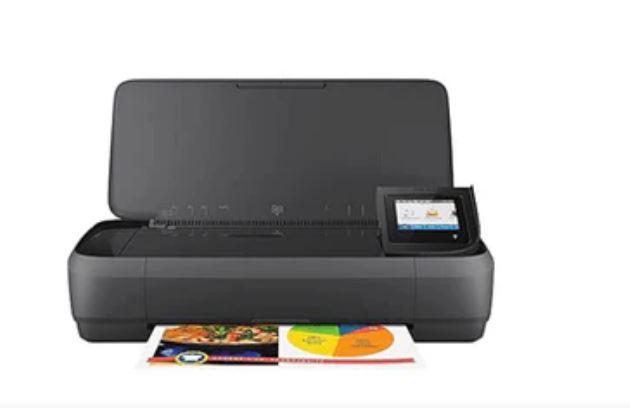The Importance of Regular HVAC Maintenance How It Saves You Money and Extends System Lifespan
Heating, Ventilation, and Air Conditioning (HVAC) systems are essential for maintaining comfortable indoor environments. Whether it’s cooling your home in the summer or keeping it warm in the winter, your HVAC system works hard year-round. However, like any complex machinery, it requires regular maintenance to operate efficiently. Many homeowners overlook the importance of routine HVAC upkeep, not realizing that it can save them significant money in the long run and extend the lifespan of their system. In this article, we will explore how regular maintenance benefits your HVAC system, reduces costs, and enhances overall performance.
1. Improved Energy Efficiency
One of the most compelling reasons to schedule routine HVAC maintenance is the improvement in energy efficiency. When HVAC components are clean and well-maintained, they operate more smoothly, requiring less energy to heat or cool your space. Dirty filters, clogged ducts, and worn-out parts can force the system to work harder, consuming more electricity and increasing utility bills.
According to the U.S. Department of Energy, replacing a dirty, clogged filter with a clean one can lower an air conditioner's energy consumption by 5% to 15% (source). This simple maintenance step can lead to substantial savings over time.
Regular maintenance also ensures that thermostats, fans, and motors function properly, reducing unnecessary energy waste. When your HVAC system runs at peak efficiency, it not only saves you money on utility bills but also minimizes your environmental footprint.
2. Reduction in Repair Costs
Ignoring minor HVAC issues can lead to major breakdowns that require expensive repairs. Preventive maintenance helps identify small problems before they escalate into costly failures. During routine inspections, technicians check for worn-out components, refrigerant leaks, and faulty wiring, allowing them to fix problems early on.
For example, a failing compressor can cost anywhere from $1,200 to $2,500 to replace, whereas regular inspections and timely repairs can prevent such failures. Investing in scheduled maintenance is a cost-effective way to avoid these high repair expenses.
3. Extended System Lifespan
HVAC systems are a significant investment, and homeowners naturally want them to last as long as possible. Regular maintenance can significantly extend the lifespan of an HVAC unit. While most HVAC systems have a lifespan of 10 to 15 years, consistent servicing can push that number closer to 20 years (source).
A well-maintained system experiences less strain, reducing wear and tear on essential components. By keeping parts clean and lubricated, technicians help prevent premature breakdowns and ensure the system operates efficiently for years to come.
4. Enhanced Air Quality
Indoor air quality is a crucial factor in maintaining a healthy home environment. HVAC systems circulate air throughout your home, and without regular maintenance, they can distribute dust, allergens, mold spores, and other contaminants. Dirty filters and ducts can lead to respiratory issues, allergies, and other health problems.
Routine maintenance includes cleaning or replacing filters, inspecting ductwork for mold or debris buildup, and ensuring proper ventilation. This process helps keep indoor air fresh and free from pollutants, making your home a healthier place to live.
5. Prevention of Unexpected Breakdowns
Few things are more inconvenient than an HVAC failure during extreme weather conditions. In the heat of summer or the dead of winter, an unexpected breakdown can lead to discomfort and even dangerous situations for vulnerable individuals, such as young children and the elderly.
Regular maintenance helps detect potential issues before they lead to sudden failures. Technicians can check coolant levels, test electrical connections, and inspect belts and motors to ensure everything is working correctly. By catching these problems early, homeowners can avoid emergency repairs and unexpected breakdowns.
6. Warranty Protection
Most HVAC manufacturers require regular maintenance to keep warranties valid. If a system fails and the homeowner cannot provide proof of routine servicing, the manufacturer may not cover the repair or replacement costs. Keeping up with scheduled maintenance ensures that warranties remain intact, offering financial protection in case of major system failures.
7. Cost Savings on Energy Bills
An inefficient HVAC system consumes more energy, leading to higher electricity or gas bills. Regular maintenance ensures that all components function optimally, reducing energy consumption and lowering utility expenses.
For instance, calibrating the thermostat correctly and sealing duct leaks can help optimize heating and cooling, preventing unnecessary energy loss. When combined with energy-efficient habits, such as using programmable thermostats and proper insulation, homeowners can see a significant reduction in their monthly bills.
8. Eco-Friendly Benefits
A well-maintained HVAC system operates more efficiently and consumes less energy, reducing its carbon footprint. Leaky ducts, clogged filters, and refrigerant leaks contribute to excess energy consumption and environmental harm. Regular servicing helps ensure that the system runs smoothly, decreasing greenhouse gas emissions and promoting sustainability.
Furthermore, proper maintenance prevents refrigerant leaks, which can be harmful to the environment. Many HVAC systems use refrigerants that contribute to ozone depletion and global warming. Ensuring that these systems are functioning correctly helps minimize their environmental impact.
9. Optimal Performance and Comfort
An HVAC system that undergoes routine maintenance delivers consistent and reliable performance. Whether heating your home in the winter or cooling it in the summer, a well-maintained unit ensures that temperatures remain steady and comfortable.
Poorly maintained systems often result in uneven heating and cooling, leading to hot or cold spots in different areas of the home. Cleaning ducts, tuning the system, and maintaining airflow balance contribute to a more comfortable living space.
10. Seasonal Maintenance Checklist
To keep your HVAC system in top condition, follow this seasonal maintenance checklist:
Spring and Summer:
- Clean or replace air filters
- Check refrigerant levels
- Inspect and clean coils
- Test thermostat settings
- Clear debris from outdoor units
Fall and Winter:
- Inspect heat exchanger
- Check gas connections
- Lubricate moving parts
- Clean vents and registers
- Ensure proper airflow and ventilation
Scheduling professional HVAC inspections twice a year—before summer and winter—can help ensure optimal system performance year-round.
Conclusion
Regular HVAC maintenance is a cost-effective way to save money, extend the lifespan of your system, and improve overall comfort. By investing in routine inspections and servicing, homeowners can reduce energy costs, prevent expensive repairs, and ensure a healthier indoor environment. Whether it’s changing filters, cleaning ducts, or scheduling professional tune-ups, taking proactive steps can result in significant long-term savings.
Don’t wait for a breakdown—schedule your HVAC maintenance today and enjoy a more efficient, reliable, and long-lasting system!





